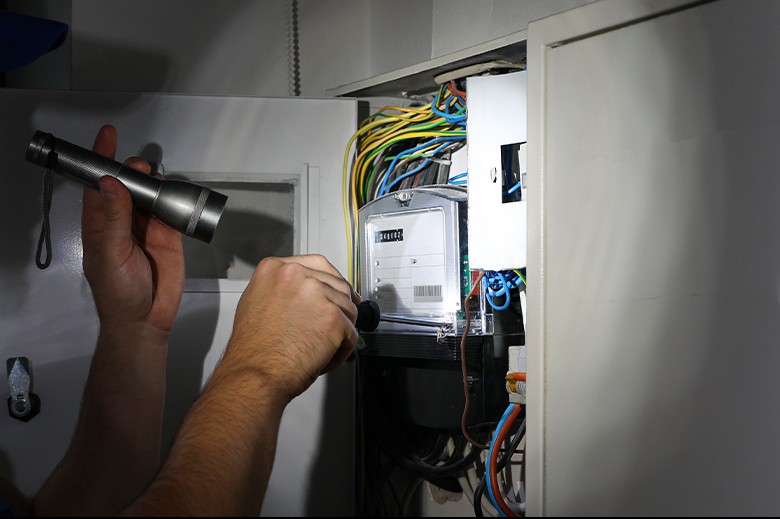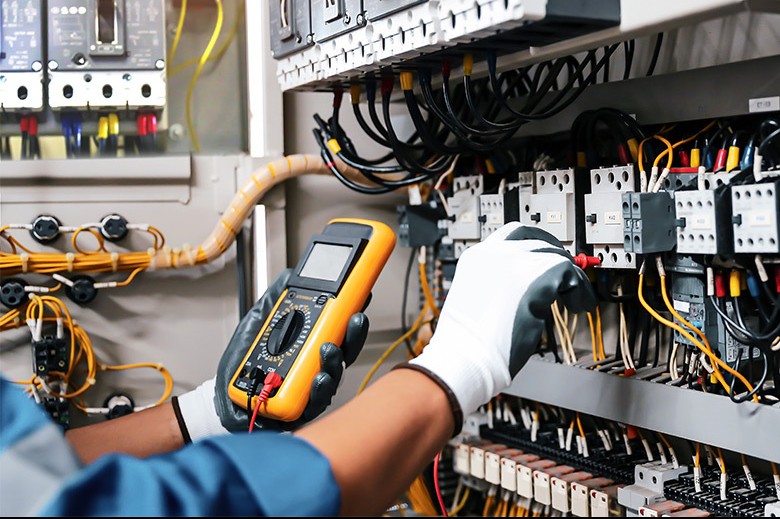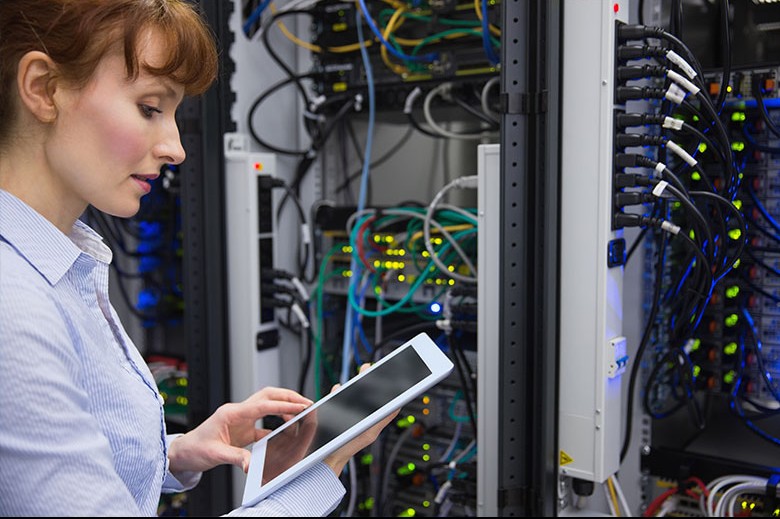UPS Systems are Supporting the Circular Economy
In many organisations, if the main power source fails, an uninterruptible power supply (UPS) will supply backup power to the equipment. This means sensitive equipment is frequently protected from power surges, power cuts, and blackouts. Yet, UPS systems themselves need electricity to run, and the amount of power they use can impact the environment.
The continued development of UPS power systems is essential to achieving a dependable and sustainable energy supply, as the demand for electricity rises and traditional power generation faces significant strain. UPS manufacturers are progressively working to solve this problem as part of the circular economy by creating more energy-efficient, higher-quality UPS systems that reduce energy consumption and waste.
To lower the amount of energy used by UPS systems, manufacturers can utilise more energy-efficient parts like high-efficiency transformers and power electronics. UPS systems can also be made more environmentally friendly by using sustainable elements and focusing on reducing wastage. Here are a few instances of how UPS systems are being made more environmentally conscious to reduce environmental impact.
A UPS with Lithium-Ion
As many of the batteries in a UPS system are lead-acid batteries, they often include hazardous elements like lead, sulfuric acid, and other toxic metals. Improper battery disposal can result in environmental problems. To avoid leaks and exposure to moisture or high temperatures, it's critical to store new batteries and used batteries correctly, in a cool, dry place.
To reduce wastage and reuse parts, many UPS manufacturers are now using Replacement UPS batteries which come in environmentally friendly variants. An alternative option is to use lithium-ion batteries, as these have a lower environmental effect and support the circular economy. In addition to operating at a wider range of temperatures, lithium-ion batteries have a longer lifespan than traditional lead-acid batteries, which helps to maintain optimal network device efficiency and significantly lower costs over time.
UPS Waste Management
Businesses can reduce their impact on the environment and protect public health by properly disposing of UPS batteries. To support recycling and disposing of lead-acid batteries, get in touch with a certified recycler as they can guarantee that the batteries are treated carefully and disposed of in accordance with local laws.
As part of the focus on the circular economy, many battery recycling programmes are also provided by UPS manufacturers as a part of their service agreements. However many businesses find it much more effective to have a planned programme of UPS maintenance as part of their standby power protection system. As these initiatives can make it simpler for businesses to responsibly recycle their used batteries, as well as reuse and repair the system rather than replace them.
Technology for Sustainability
There are several new UPS technologies being introduced, that can help organisations to improve the sustainability of their backup power solutions. The use of high-efficiency transformers can reduce energy consumption and minimise heat loss. Whilst on newer UPS models an eco-mode operation can be used to reduce energy consumption by adjusting the UPS system's output voltage based on the load requirements.
Modular UPS systems offer a dependable supply of backup power for your business and can be scaled up or down as needed when the size of your company changes. This may aid in maximising energy use and minimising energy waste.
UPS Remote Monitoring
The performance and energy efficiency of the UPS system can also be improved by using cloud-based monitoring and management tools. These systems can monitor the UPS system remotely, provide early fault protection and can give real-time information on the electrical load and other UPS parameters.
The secure cloud-based Adept Power remote (ARM) monitoring solution safeguards your mission-critical equipment around-the-clock, everyday alarms and faults are discovered right away, hastening the treatment of technical issues and minimising discomfort. This proactive approach also allows us to identify potential issues before they grow more serious.
UPS Environmental Management
To support the circular economy businesses using a UPS system can take a few easy steps to reduce the environmental effect of their backup power supplies, and repair, reuse and reduce wastage wherever possible. They can create policies and processes to ensure the long-term use of a UPS system and ensure there are procedures for turning off inactive equipment, including energy-saving features and disposing of used batteries.
Maintaining regular monitoring, maintenance, and evaluation of the UPS system's environmental performance, can help to ensure that businesses operate efficiently and reduce energy consumption. To optimise energy usage and reduce waste, Adept Power Solutions can provide end-to-end care for all your UPS and generator requirements and take the guesswork out of finding the right power solution for your business.
Get in Touch
Contact us today to see how we can help provide your business with a reliable backup power solution to avoid any disruption to business today.





